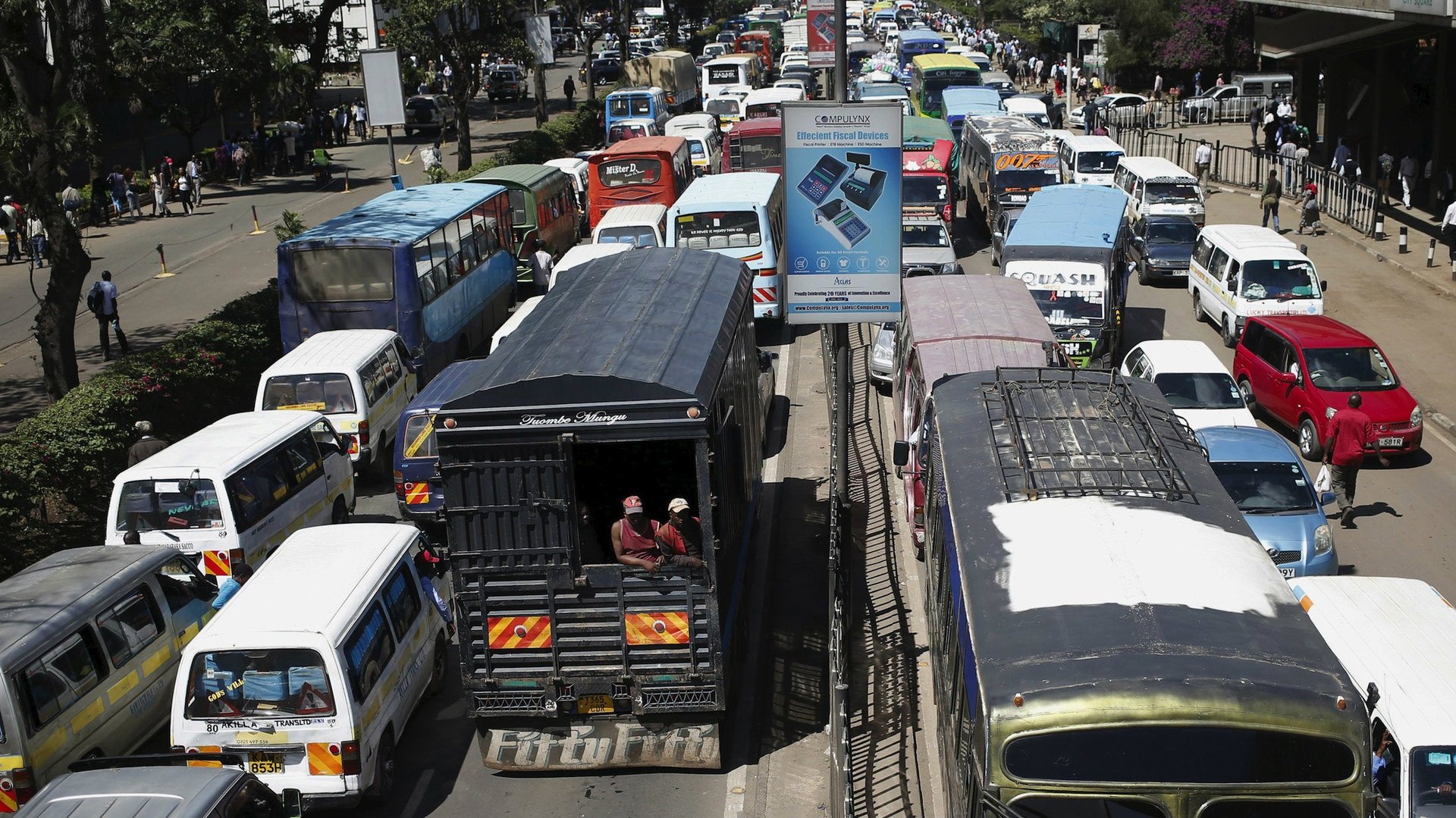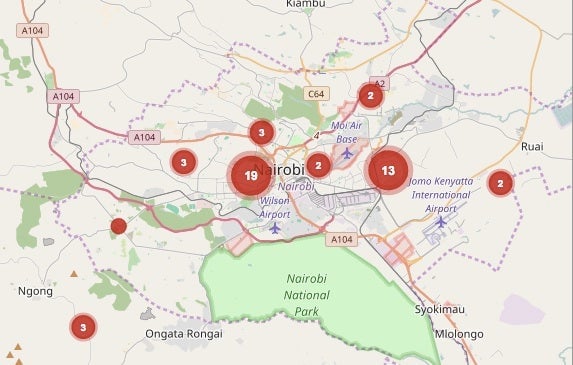Kenyans have launched a campaign on Twitter to fix their roads
Traffic is a problem in Nairobi. A short commute can last for hours during morning or evening rush hour. Buses and motorbikes cut in and out of traffic, worsening congestion. It’s estimated that road congestion costs Kenya’s capital as much as $570,000 a day in lost productivity.


Traffic is a problem in Nairobi. A short commute can last for hours during morning or evening rush hour. Buses and motorbikes cut in and out of traffic, worsening congestion. It’s estimated that road congestion costs Kenya’s capital as much as $570,000 a day in lost productivity.
One of the reasons for the city’s bad traffic is the state of the roads: drivers swerve to avoid potholes, bumps, or breaks in the roads, causing a buildup of traffic. To help, an online campaign called “What is a Road” is crowdsourcing the location and condition of potholes around the city in an effort to push local officials to fix them.
Nairobians tweet a photo and location of a pothole under the hashtag #whatisaroad. Those reports are uploaded to a map, used to analyze where the city’s potholes are located and track which ones have been fixed. ”We decided to take a more data driven approach to track progress, promises made and projects delivered,” says Muthuri Kinyamu, one of the organizers.

The campaign is also about addressing some of the fundamental problems that hold cities like Nairobi back. In Nairobi, branded the center of “Silicon Savannah” in recent years, there’s often more focus on entrepreneurship and innovation than resolving simpler problems like the state of the roads.
“We want basics to work first. We’re tired of leap frogging over potholes,” said Ory Okolloh, a Kenyan tech investor and one of the project’s organizers, echoing comments she made last year. Speaking at the Quartz Africa Innovators summit, Okolloh said:
“I’m concerned about what I see is the fetishization around entrepreneurship in Africa… Like, don’t worry that there’s no power because hey, you’re going to do solar and innovate around that. Your schools suck, but hey there’s this new model of schooling. Your roads are terrible, but hey, Uber works in Nairobi and that’s innovation.”
The campaign, started in August, will continue until January. Chris Orwa, a data analyst helping with the project, says that they can’t take credit for all the repairs they have been documented around the city, but they have noticed that roads are being fixed within days of a #Whatisaroad report. The average response time for fixing a road reported by a What is a Road user is three days, according to Orwa.